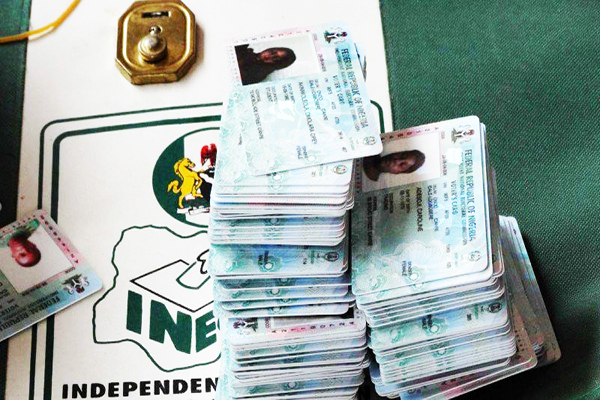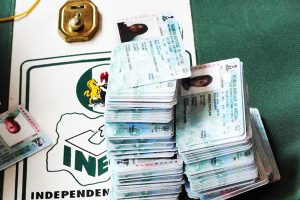
WHY WE MIGHT DESTROY OVER SIX MILLION UNCOLLECTED PVCs – INEC

The Independent National Electoral Commission (INEC) has proposed a policy to withdraw and destroy Permanent Voter Cards (PVCs) that have remained uncollected for over ten years, citing operational inefficiencies and the need to streamline the voter management system.
This recommendation was part of INEC’s review of the 2023 general elections, which resulted in 208 proposals aimed at improving electoral processes.
INEC reported that more than six million PVCs remain uncollected, including many issued as far back as 2015. Stakeholders have recommended withdrawing unclaimed PVCs, starting with those that have been uncollected for nearly a decade.
“Following the publication of the Register of Voters, the commission made available the PVCs for collection by voters on December 12, 2022,” INEC explained. “The exercise was initially planned to end on the 22nd of January 2023. However, the fact that a huge number of registered voters had yet to collect their PVCs forced the commission to extend the deadline to the 5th of February 2023 after devolving the collection to the ward level between January 6-15, 2023 to ease the process.”
Despite these efforts, including an online tracking tool and partnerships with civil society organizations (CSOs) to support collection drives, millions of PVCs remain unclaimed.
“The low rate of PVC collection and other related challenges are illustrative of the problem of processing and managing voters in Nigeria,” INEC said. “With support from development partners, some CSOs created information centers in selected states and the FCT to assist voters in locating and collecting their PVCs. Despite these efforts, over six million PVCs remained uncollected, many of them dating back to 2015.
“Consequently, one recommendation from the review was that the commission should consider withdrawing PVCs issued in 2015 since it is not clear if the owners will ever collect them.”
INEC also outlined plans to modernise Nigeria’s electoral process, including the gradual phase-out of PVCs and the introduction of diaspora voting. The commission highlighted the Bimodal Voter Accreditation System (BVAS) as a transformative tool, rendering physical PVCs less critical for voter accreditation.
“Unlike the SCR, the voters’ register is now resident in the BVAS,” INEC explained. “The new device does not read and extract voters’ details from the PVC. Moreover, the Electoral Act 2022 has made biometric accreditation (fingerprint or facial) mandatory for voting.
“The utility of the PVC is now limited to voter identification. It is therefore possible to identify voters using their registration slips which obviates the need for PVCs, the cost of producing them, the logistics for their distribution and the fact that voters without them are unable to vote, thus raising serious issues of disenfranchisement.
”With the BVAS, voters can be identified using their registration slips, otherwise known as the Temporary Voter’s Card, and accredited biometrically without the need for a plastic PVC.”
